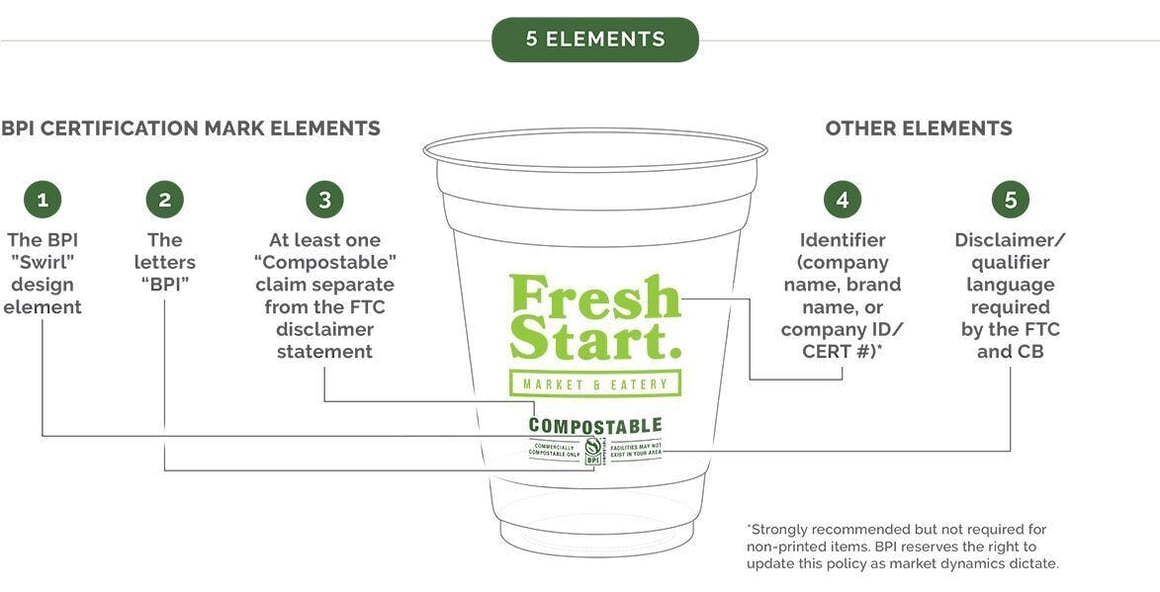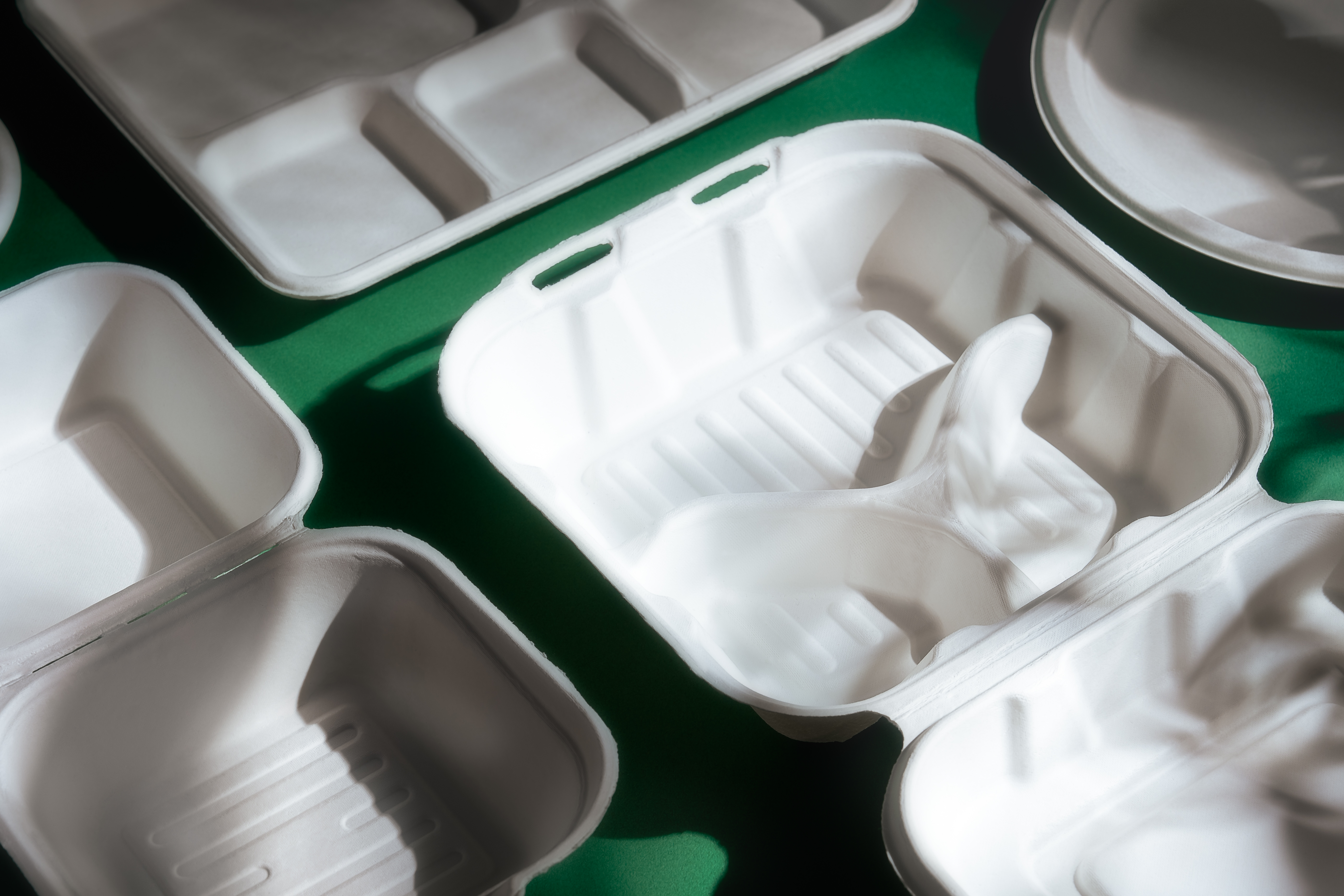BPI-certified products are designed to break down safely in industrial composting facilities. This certification is managed by the Biodegradable Products Institute (BPI), a nonprofit organization. BPI works with independent labs to ensure that products meet strict compostability standards, based on guidelines set by recognized testing organizations. This ensures that certified products decompose effectively without leaving harmful residues.
To earn BPI certification, products must meet three key criteria:
-
Complete biodegradation: The product must break down fully into carbon dioxide, water, and biomass within a reasonable time frame (usually within 90 days), leaving no harmful residues or toxic substances.
-
Disintegration: The product should physically break apart and be indistinguishable from the compost at the end of the composting process.
-
Non-toxicity: The compost created from the product must be free from any harmful levels of heavy metals or other contaminants and safe for use in soil.

Image Source: Biodegradable Products Institute
The Importance of Choosing BPI-Certified Disposables
1. Reducing Landfill Waste
One of the most significant benefits of BPI-certified disposables is their ability to divert waste from landfills. Conventional plastic disposables can take hundreds of years to break down in a landfill, contributing to long-term pollution. Compostable products, on the other hand, can be processed in industrial composting facilities, breaking down into natural materials in a matter of months. This process reduces the overall volume of waste sent to landfills and helps lower methane emissions—methane being a potent greenhouse gas generated by decomposing organic waste in anaerobic landfill conditions.
2. Supporting Sustainable Agriculture
When BPI-certified products are composted, the result is nutrient-rich compost that can be used to enrich soils, helping to support sustainable farming and gardening practices. Composting helps retain moisture in the soil, reduces the need for chemical fertilizers, and improves the overall health of plants. By choosing BPI-certified products, consumers and businesses are indirectly contributing to healthier soils and ecosystems.
3. Encouraging the Development of Biodegradable Materials
Supporting BPI-certified products helps drive demand for research and innovation in the development of biodegradable materials. Manufacturers are encouraged to create more sustainable alternatives to conventional plastics and invest in the development of materials that meet compostability standards. This growing demand can lead to the creation of more products that can safely return to the earth rather than lingering as waste.
4. Raising Consumer and Industry Awareness
BPI certification also serves as an educational tool, helping consumers and businesses make more informed choices. When a product carries the BPI logo, it signals that the product has met rigorous testing standards and can be composted in a commercial facility. This transparency empowers consumers to choose products that align with their values and encourages companies to adopt more sustainable practices.
5. Combating Plastic Pollution
Plastic pollution is one of the most significant environmental challenges of our time. Much of the plastic waste in our oceans, waterways, and landscapes originates from single-use disposables like straws, cups, and packaging materials. While compostable alternatives won’t solve this problem on their own, they offer a viable solution for reducing the amount of non-biodegradable plastic entering the environment. Choosing compostable disposables can help reduce our reliance on conventional plastics and combat the growing plastic pollution crisis.
The Challenges of Compostability
Despite the clear environmental benefits of BPI-certified products, there are challenges that need to be addressed to maximize their impact.
-
Access to Commercial Composting Facilities: Most BPI-certified products are designed to break down in commercial composting facilities that maintain controlled temperature and moisture conditions. Unfortunately, access to these facilities is not universal, meaning that some compostable products may still end up in landfills if local composting infrastructure is not available. In such cases, even compostable items may not decompose efficiently in landfill conditions.
-
Proper Disposal Practices: Consumers and businesses must ensure that compostable products are disposed of correctly—ideally in composting bins or programs. Education and awareness campaigns are essential to prevent compostable products from being mixed with conventional recyclables or sent to landfills.
-
Misleading Labels: Some products labeled as "biodegradable" may not meet compostability standards and can cause confusion. BPI certification helps eliminate this uncertainty by providing clear guidelines and testing results, ensuring consumers are purchasing truly compostable products.
